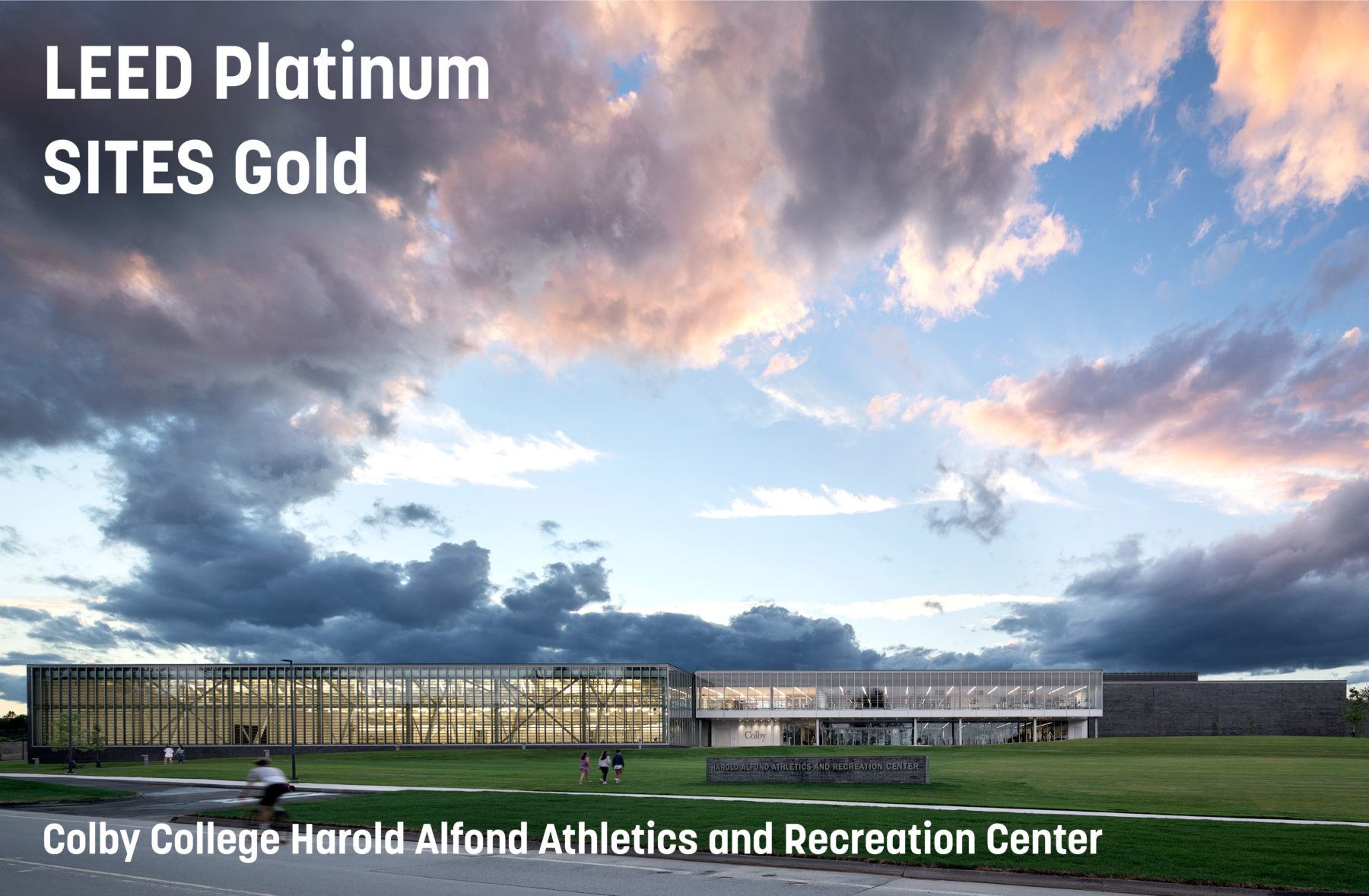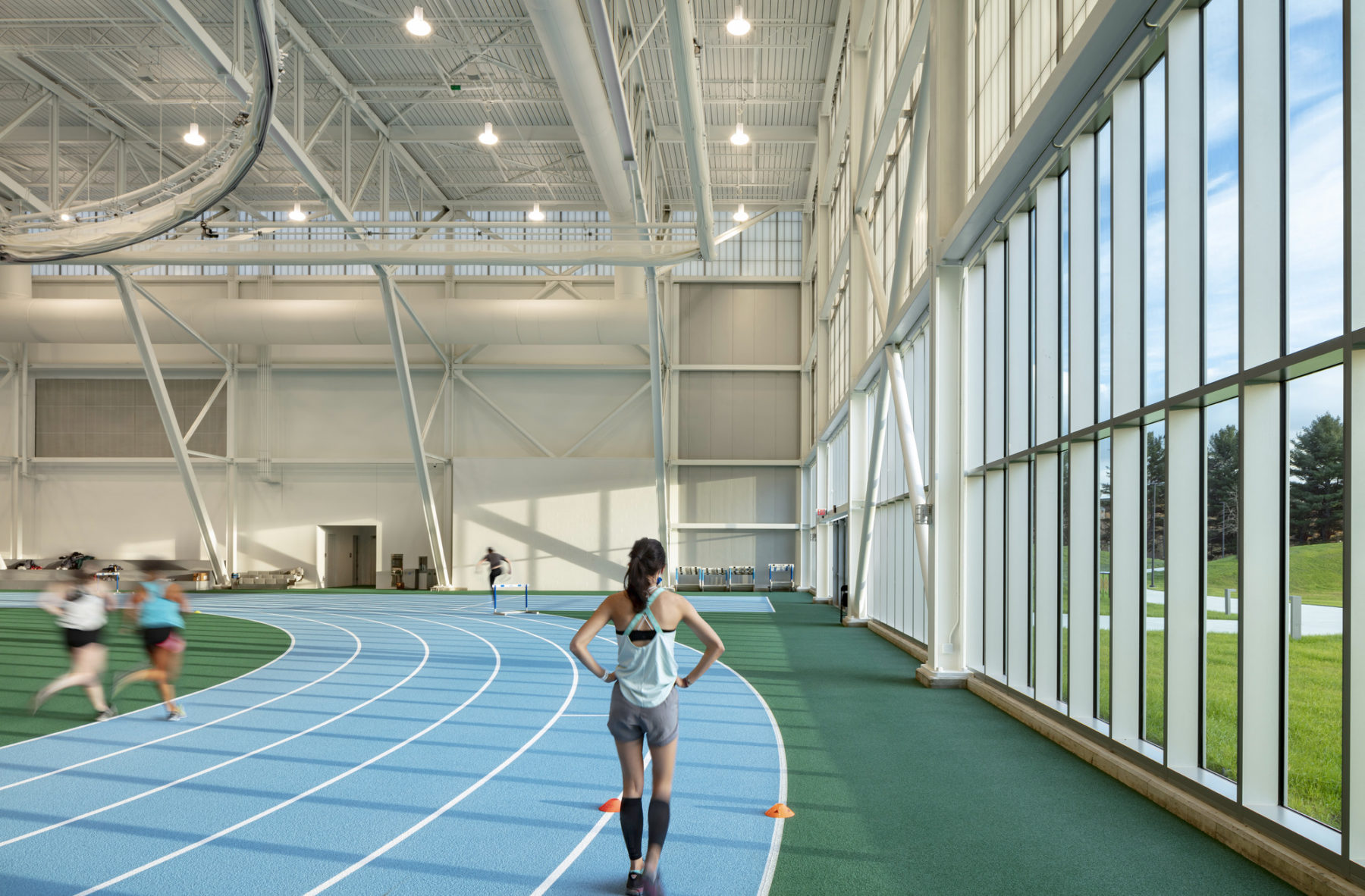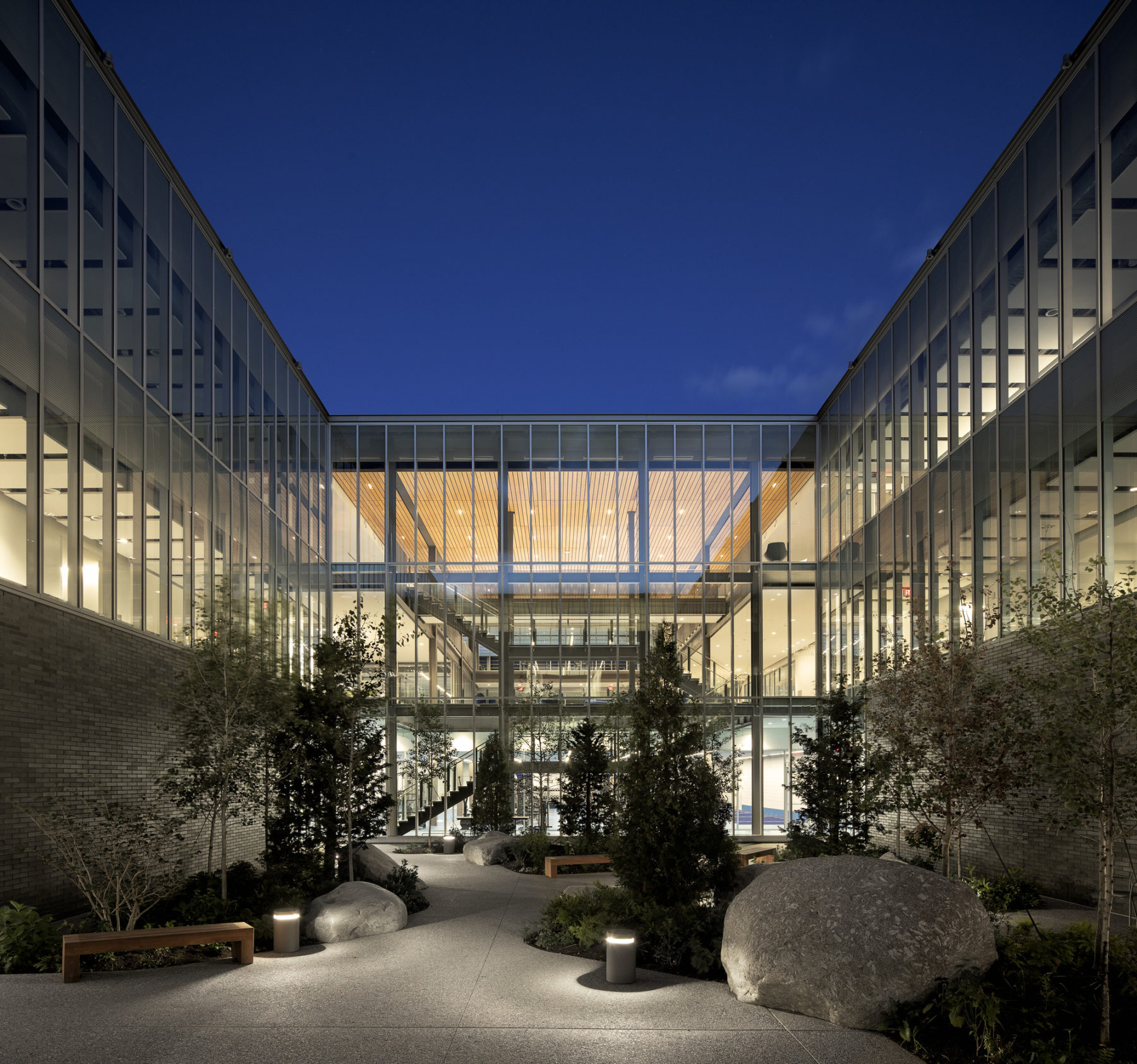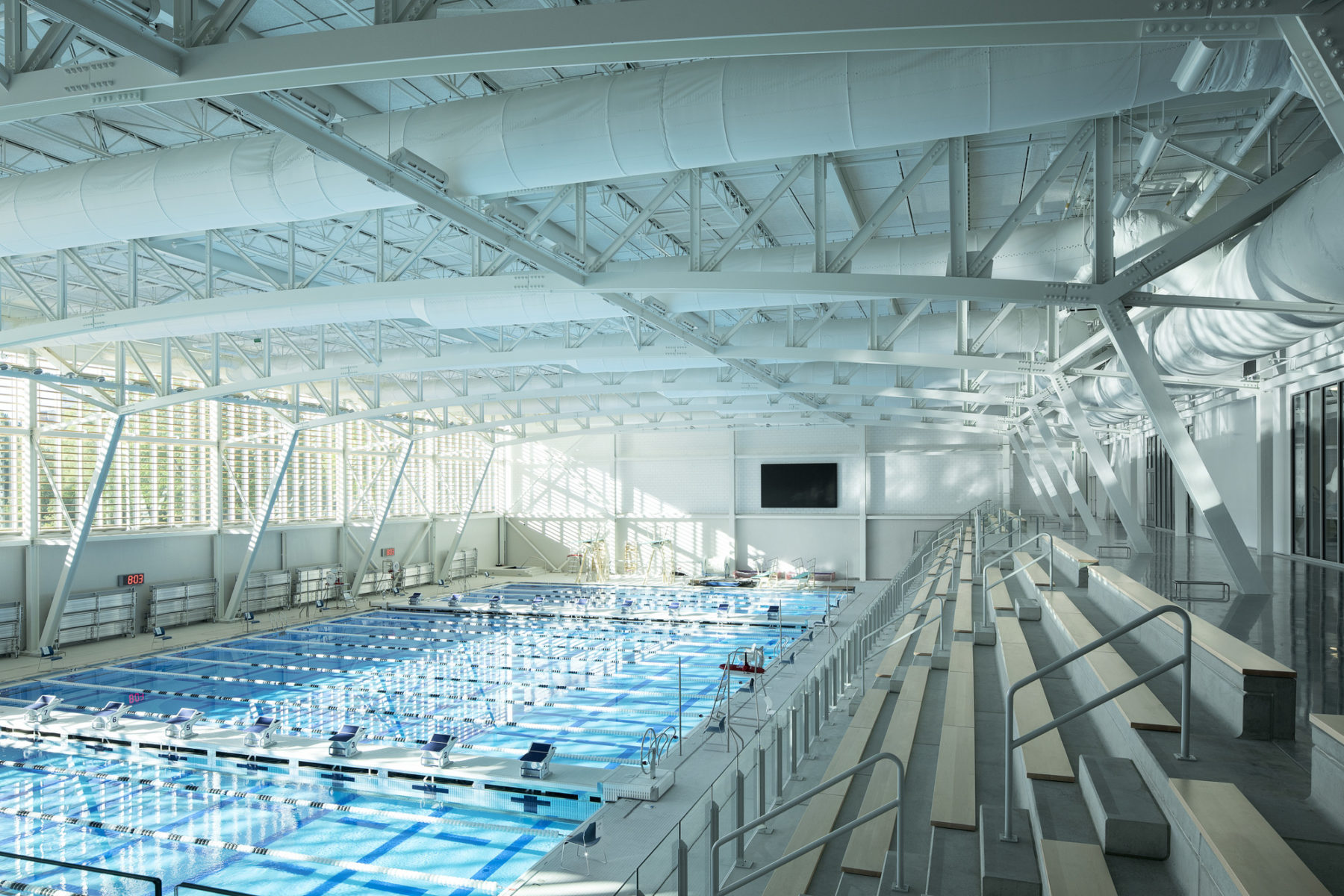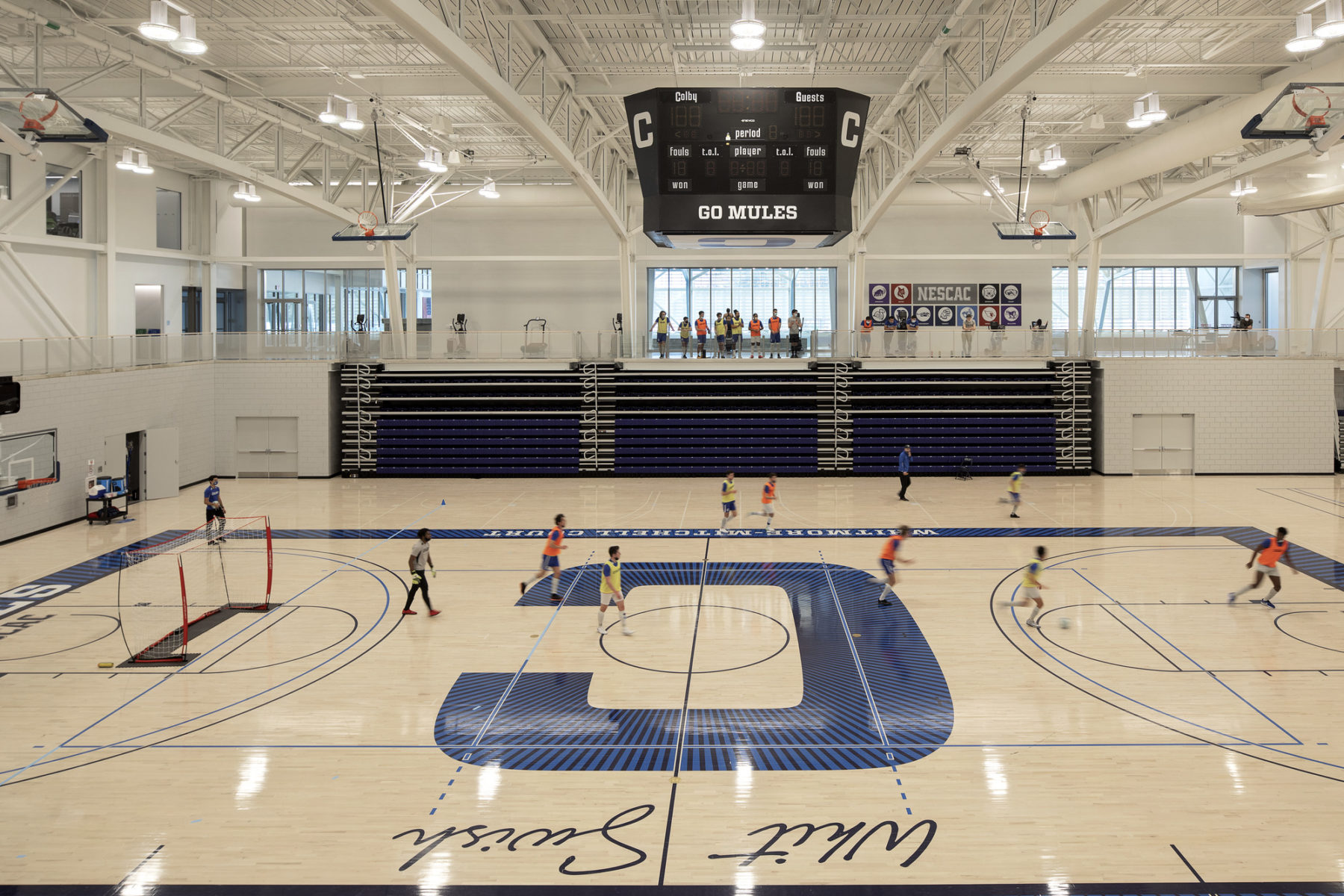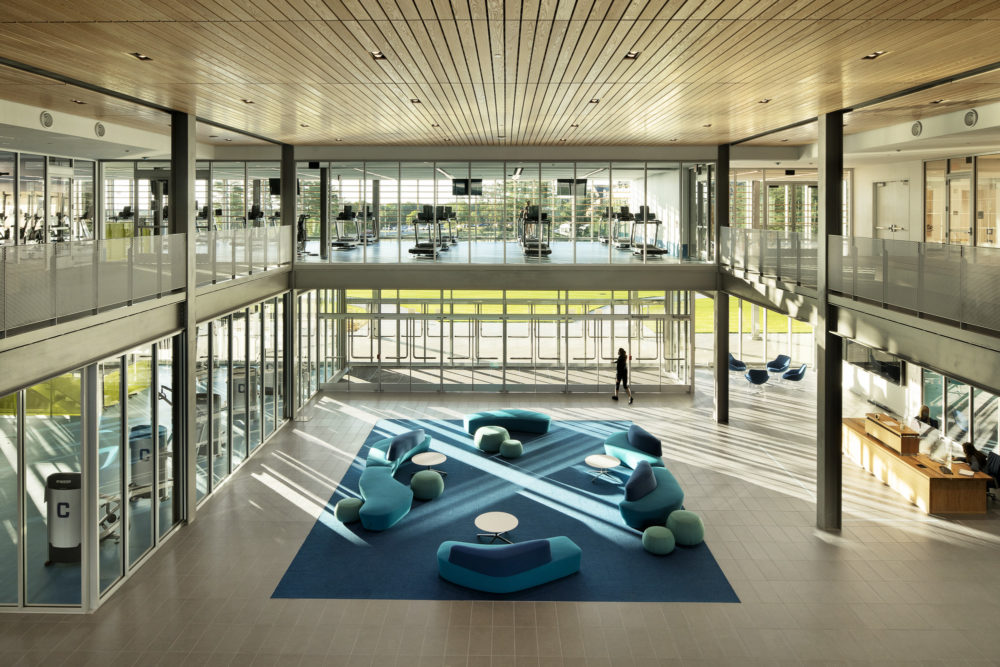LEED—the most widely used green building system in the world—provides a framework for healthy, efficient, carbon and cost-saving green buildings and is globally recognized as a mark of excellence and leadership in the field of sustainability. The LEED Platinum certification was particularly impressive as the school and design team took no shortcuts throughout the design and implementation process. While the design at its initiation was eligible to work to the requirements of LEED v3, which is less demanding than that of the v4 requirements, the decision was made to meet the more rigorous criteria and a higher certification level. With guidance from Thornton Tomasetti—which served as the LEED and SITES consultant and saw the certifications through to completion—the project team was not only able to meet the enhanced LEED standard and certification, but do so within budget and schedule. The overall credits included the demolition and waste reduction stream of the former athletics complex, which required an additional year of work.
The combination of solutions developed in collaboration with Arup–which include daylight harvesting, air system energy recovery wheels, and a pool heating system powered by excess waste heat–enabled energy use reduction to 47% below the code baseline. Arup’s structural designers helped the team develop the most lightweight structural solution possible. The highly optimized design lowered embodied CO2 by approximately 800 tons by reducing the structure’s steel tonnage by 20% and lowering the volume of concrete required by 5% relative to more conventional design solutions. These solutions contributed to the project earning all 33 possible energy points in the LEED Platinum criteria and were also important in the pursuit of the SITES Gold certification.
SITES is the culmination of years of research and development by leading professionals in the fields of soil, water, vegetation, materials, and human health. SITES-certified landscapes help reduce water demand, filter and reduce stormwater runoff, provide wildlife habitat, reduce energy consumption, improve air quality and improve human health, and increase outdoor recreation opportunities.
The SITES standard was added to the project as a goal and completely new standard for the college. The team and the landscape architects, Michael Van Valkenburgh Associates, and civil engineers, Sebago Technics, incorporated soil restoration, and native wet and upland meadows to increase site biodiversity and manage stormwater through natural systems. This new landscape provides a special opportunity for teaching, research, and recreation, while showcasing over one million square feet of native plants.
The Athletics and Recreation Center is the first SITES project in Maine and New England to obtain Gold-level accreditation. In its review, SITES noted exceptional achievement—26 of a possible 30 points—in the site design-human health and well-being category. In addition to serving the college, the athletic venues and site related amenities feature universal accessibility and are made available to local communities for their use.
Design Team Credits
Client: Colby College
Design Architect: Hopkins Architects
Executive Architect: Sasaki
Structural & M&E Engineer: Arup
Sustainability Consultant: Thornton Tomasetti
Landscape Architect: Michael Van Valkenburgh Associates
Main Contractor: Consigli Construction Company
Lighting Designer: HLB
Civil Engineer: Sebago Technics
Aquatics Consultant: Councilman-Hunsaker
Ice Consultant: B32 Engineering Group
Code Consultant: Jensen Hughes
For more information on Colby College Harold Alfond Athletics and Recreation Center and Sasaki’s additional sports practice projects, please visit www.sasaki.com.
About Sasaki
For more than 68 years, Sasaki has led the design industry in bringing together diverse perspectives, blending disciplines, engaging with clients and communities, drawing on history and context, uncovering new ways of thinking and making, and tapping into data and emerging technologies to shape the built environment. From studios in Boston, Denver, and Shanghai, Sasaki’s 300 professionals partner with education, civic, and commercial clients, all around the world. Sasaki’s design services span architecture, interior design, planning and urban design, space planning, landscape architecture, and civil engineering.

